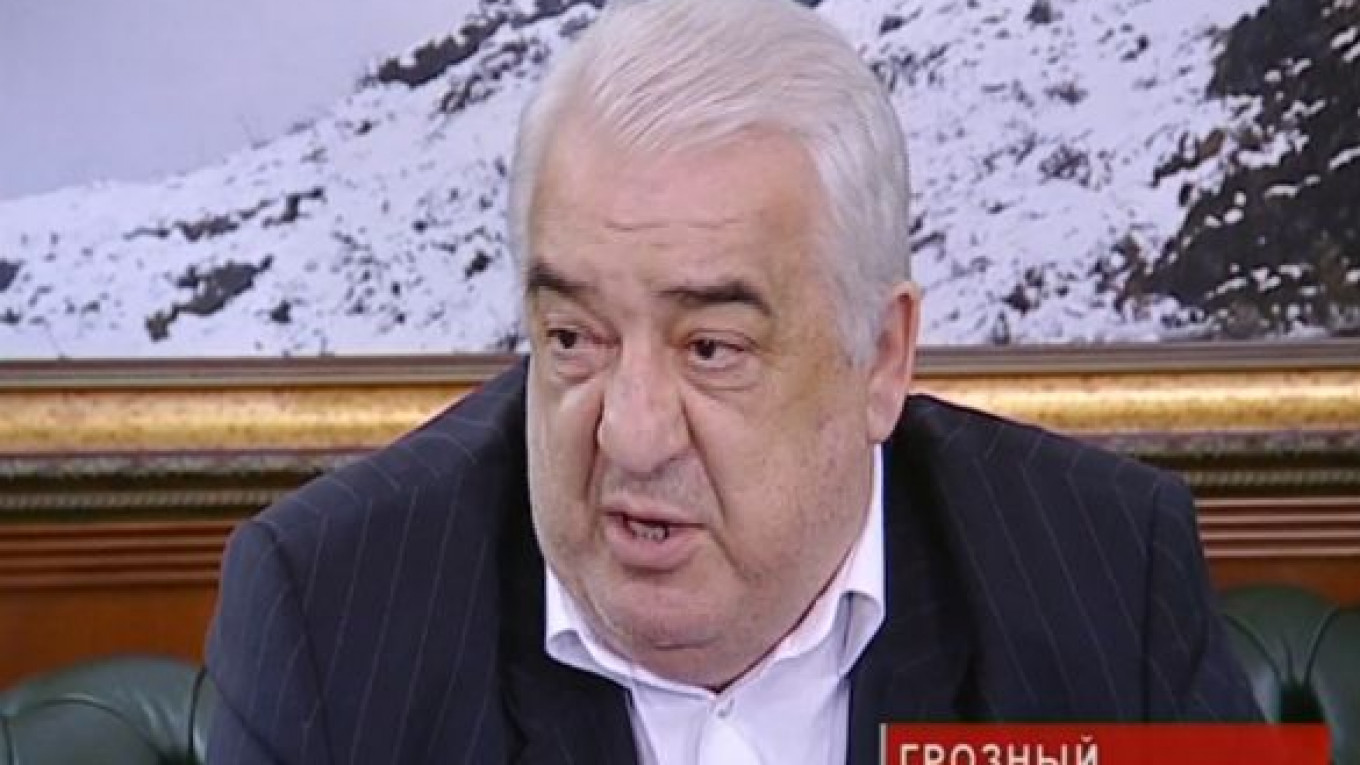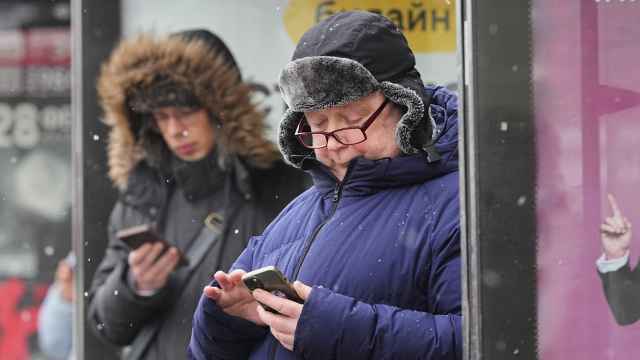A former representative of the Chechen separatists in Tbilisi has accused Georgian President Mikheil Saakashvili of being responsible for terrorist attacks in Russia.
Khizri Aldamov said Thursday that Georgian security services had overseen a string of attacks in the North Caucasus over the past years.
"They organize terrorist acts. I know that," he told reporters in Moscow.
He cited bomb attacks in Vladikavkaz as examples, and he named Zemlikhan Khangoshvili, an ethnic Chechen from Georgia whom the Federal Security Service in 2008 identified as the head of a terrorist group responsible for a 2004 attack in Ingushetia that killed nearly 100.
"The Khangoshvili group was formed with active government help from Tbilisi," he said.
Aldamov also said Georgian security services were behind an attempt to poison him in 2004. He accused the current Georgian government of being largely financed by the United States.
Pressed by reporters for evidence, Aldamov merely reiterated his accusations. "I know because I have seen it all myself," he said.
Officials in Tbilisi strongly denied the accusations. A senior Georgian lawmaker suggested that Aldamov was acting as a stooge for the Federal Security Service, or FSB.
"From time to time, usually senior FSB officials make these sorts of crazy statements," Giorgi Kandelaki, the deputy chairman of the parliament's foreign relations committee, told the Moscow Times.
He said Aldamov is an "ambiguous character" who had a close relationship with the government of former President Eduard Shevardnadze but has played no role in Georgia since Saakashvili came to power in 2004.
Aldamov, curiously, praised Shevardnadze for treating him like an ambassador but said that Shevardnadze also had overseen the arming and training of terrorists in Georgia.
Kandelaki recalled that Tbilisi has accused Moscow of organizing terror attacks in Georgia. Exactly one year ago, the Washington Times cited U.S. and Georgian intelligence reports that blame the GRU military intelligence service for a blast outside the U.S. Embassy in Tbilisi and other attempted bombings on Georgian soil.
Relations between Georgia and Russia have been severed since both countries fought a war over the breakaway region of South Ossetia in 2008.
Aldamov, who had been in Tbilisi since 1994, suddenly appeared in Grozny last month, where he Chechen leader Ramzan Kadyrov in a televised that he "deeply regretted wasting all those years" in Georgia.
Kadyrov has been accused of suppressing dissent and killing opponents inside and outside Chechnya.
Prominent cases include the brothers Ruslan and Sulim Yamadayev, who were shot in Moscow and Dubai, respectively, as well as Umar Israilov, a Chechen refugee killed in Vienna in 2009. The Chechen leader has vehemently denied any wrongdoing.
Aldamov said his desire to leave Georgia grew after the 2004 poisoning incident. He told the Moscow Times in a separate interview that he first planned to go to Austria via Kazakhstan but changed his mind after talking to a distant relative in the Central Asian country.
"When he first suggested returning to Chechnya, I said, 'They will kill me there,'" Aldamov said. "But he managed to persuade me."
A Message from The Moscow Times:
Dear readers,
We are facing unprecedented challenges. Russia's Prosecutor General's Office has designated The Moscow Times as an "undesirable" organization, criminalizing our work and putting our staff at risk of prosecution. This follows our earlier unjust labeling as a "foreign agent."
These actions are direct attempts to silence independent journalism in Russia. The authorities claim our work "discredits the decisions of the Russian leadership." We see things differently: we strive to provide accurate, unbiased reporting on Russia.
We, the journalists of The Moscow Times, refuse to be silenced. But to continue our work, we need your help.
Your support, no matter how small, makes a world of difference. If you can, please support us monthly starting from just $2. It's quick to set up, and every contribution makes a significant impact.
By supporting The Moscow Times, you're defending open, independent journalism in the face of repression. Thank you for standing with us.
Remind me later.







